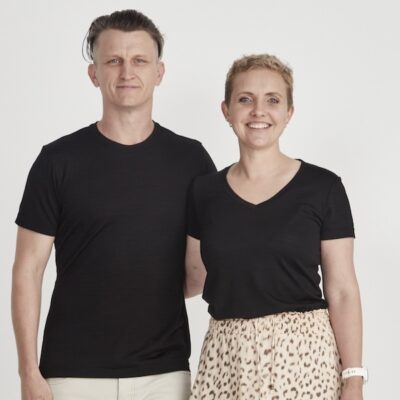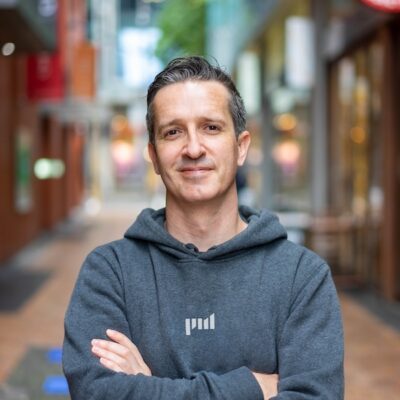A Kiwi biotech startup created to reduce global dependence on milk protein is the first recipient of funding from a multi-million initiative set up to reduce the failure rate of social enterprises.
Daisy Lab, which was established by Auckland University’s genomics lead Dr Nikki Freed, research scientist Emily McIsaac and former industry consultant Irina Miller, uses precision fermentation technology to ‘train’ microorganisms to create casein and whey – for the development of bio-identical, dairy alternative products such as cheese and ice-cream.
The startup was selected from over 500 businesses that entered a nationwide competition for Kiwi entrepreneurs that can help solve a societal or environmental issue.
Nous, a new organisation which provides mentoring, coaching, investment and marketing support for environmentally and socially focused Kiwi enterprises in their early stages of growth, is the creation of Brianne West, founder and CEO of the country’s largest regenerative beauty product exporter, Ethique.
West launched the ‘Got Nous’ competition during the first stage of the fund’s launch to help raise awareness of the challenges faced by social enterprises – which have a failure rate of 95 percent within their first decade of operation.
She says it is clear from the high number of entries there is a chronic lack of support infrastructure for Kiwi startups looking to solve environmental issues.
Businesses were asked to present their idea to an expert panel – including identifying the social or sustainability problem they are seeking to change and details of how that will be achieved.
McIsaac says the pathway from research and development to market-ready products requires a broad skill base that is not always available at the startup phase.
She says data suggests precision fermentation could reduce the emissions from the production of a kilo of cheese by up to 97 percent – compared to using traditional cow’s milk.
“While we have had significant support and interest from investors and innovation funds, this is the first brand and product mentoring programme that we will enter.
“It comes at key stage in our development – providing us with the funding needed to hire new scientists and scale up fermentation of our microorganisms – a precursor to the development of consumer ready products.
“We are a primarily scientific team with most of our knowledge base focused on developing the process that will help us create a viable alternative to yoghurt and cheese – having access to a team of consumer product specialists will be invaluable as we bring these products to the domestic and international markets,” she says.
West says their analysis of data from the entries shows there are large numbers of New Zealand startups looking to enter the alternative proteins market.
She says businesses like these need greater support to ensure they can develop to a scale at which they can make a significant impact on rehabilitating the environment.
“We know is that social enterprises operate using a model that is distinctively different from traditional ‘profit-first’ businesses.
“In many ways this is a new trend with relatively few ventures surviving their initial years to reach a point at which they could share their experience with other mission driven organisations.
“This means there are substantially more social or environmental startups than there are coaching organisations with the requisite experience and resources they need to develop.
“It is critical that more is done to support these businesses, not simply through the provision of financial aid but more importantly by offering the structured guidance needed to navigate the unique set of challenges they face.
“Daisy Lab is an example of company that has the potential to significantly reduce our emissions, we know now that there are many more startups in New Zealand that also can make similar inroads into addressing systemic environment issues we face as a nation and they require customised support to grow to fruition,” she says.
West says they are looking to extend their mentoring programme and are looking to develop a scholarship programme.
Other winners of the competition, which will share a cash and mentoring prize pool valued at $140,000, include Critical Supply, a fair-trade instant coffee brand that returns profits to local community and Come Clean, a company producing a sexual wellness product from organic hempseed which aims to destigmatise the use of lubricant.
Pictured above: Daisy Lab founders (L-R) Irina Miller, Dr Nikki Freed, Emily McIsaac.






